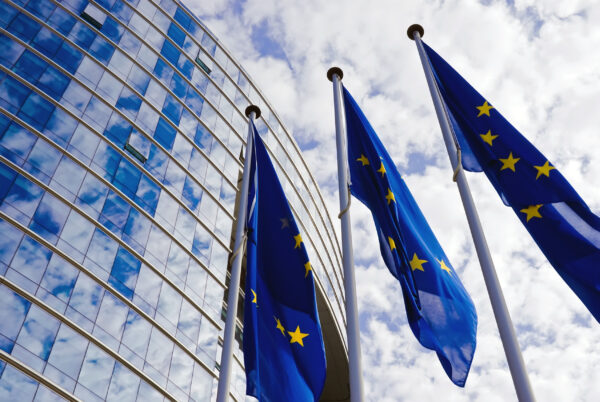
Illumina closed its acquisition of liquid biopsy company Grail before a European Commission (EC) inquiry of the deal concluded. For that premature action, the commission on Wednesday imposed a €432 million fine—the maximum amount allowed under its rules.
The commission contends both Illumina and Grail breached the standstill obligation of European Union merger law, which bars companies from combining until the regulator clears the deal. Both companies are based in the U.S., but the European law’s competition-preserving provision applies to mergers that have an effect on the European economic community.

With the Rise of AI, What IP Disputes in Healthcare Are Likely to Emerge?
Munck Wilson Mandala Partner Greg Howison shared his perspective on some of the legal ramifications around AI, IP, connected devices and the data they generate, in response to emailed questions.
Grail has commercialized Galleri, a multi-detection cancer test that finds early signs of cancer from a small blood sample. This liquid biopsy is commercially available in the U.S. and the U.K., but not the European Union. When Illumina closed the $8 billion Grail acquisition, it did so to stay in front of a deadline in the merger agreement that required completion of the transaction by the end of 2021. Failure to do so would incur a $300 million termination fee. According to the commission, Illumina weighed the risk of the European fine against the break-up fee it would owe for failing to complete the Grail acquisition, then went ahead and closed the deal anyway.
“If companies merge before our clearance, they breach our rules,” Margrethe Vestager, the European Commission’s executive vice-president in charge of competition policy, said in a prepared statement. “Illumina and Grail knowingly and deliberately did so by implementing their tie-up as we were still investigating.”
European merger law permits the commission to fine a company up to 10% of its annual revenue as a penalty. While the commission took into consideration Illumina’s decision to keep its business separate from Grail’s pending the outcome of the commission investigation, the regulator opted to impose the maximum penalty. The €432 million (about $476 million) fine represents about 10% of Illumina’s revenue.
The commission also contends Grail played an active role in the breach of rules by taking legal steps to enable the completion of the transaction even while the anti-trust inquiry was ongoing. The EC imposed a €1,000 “symbolic fine” on Grail—the first time the regulator has penalized the acquisition target for jumping the gun on a deal.
The consistent position of Illumina is that the EC does not have jurisdiction over the Grail acquisition. Illumina’s challenge to this jurisdiction is pending before the European Court of Justice. A ruling in favor of the company would eliminate the basis for the fine. David McAlpine, global head of public relations at Illumina, said in an email that the commission’s decision was expected, but is “unlawful, inappropriate and disproportionate.” He added that Illumina will appeal the EC decision.
“We closed the transaction in 2021 because there was no impediment to closing in the U.S. and the deal timeframe would have expired before the EC could reach a decision on the merits,” McAlpine said. “The deal timeframe relied on the EC’s public statements that it would not assert jurisdiction over mergers of this type until new guidelines were issued, yet the EC nonetheless asserted jurisdiction over the merger before issuing the promised guidelines.”
Illumina made financial preparations for the EC decision. According to Illumina’s financial report for the fiscal first quarter of 2023, in January Illumina secured a borrowing agreement that provides the company with $750 million. As of April, Illumina had not borrowed any money under this agreement, but the company added that it may draw upon it to pay any potential EC fines.
The Grail acquisition has been costly to Illumina in other ways. The company’s stock price has fallen and plateaued as the regulatory review of the transaction drags on. Activist investor Carl Icahn led a proxy fight that pushed for changes on the board of directors and in Illumina management. Last month, Illumina announced CEO Francis deSouza would resign, effective July 31. Charles Dadswell, senior vice president and general counsel, will serve as interim CEO while the board searches for deSouza’s replacement.
Illumina’s Grail acquisition is still under scrutiny by U.S. antitrust regulators. In April, the Federal Trade Commission ordered Illumina to divest Grail on grounds that the tie-up is anti-competitive.
Photo: sinonimas, Getty Images














